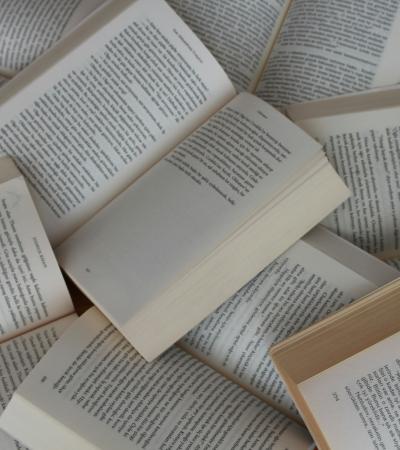The Publishing Writers' Support Group is an hourlong casual meeting for faculty and staff who — regardless of teaching status — may come and talk about current projects, frustrations or ideas in a welcoming and relaxed environment.
Advanced Planning
The idea for this program stemmed from the lack of communication we seem to have with those who are doing their own research or creative writing projects on campus. We also lack a good way to introduce ourselves and build credibility with faculty now that academic librarians are no longer given faculty status. Finally, we really wanted to get more faculty and staff from across campus into the library to take advantage of our resources and services. The support group seemed like a good way to address all three of those issues.
Planning for this series was minimal. All it required was a meeting space and advertisements to the appropriate constituents. As such, we were able to pull it together in less than a month.
I reserved the study room for four meetings (the first Wednesdays of the month at 12 p.m.) throughout the semester and created the ads, while our intrepid program assistant made sure the ads were distributed appropriately.
Marketing
We began promoting the event about two weeks prior to the first meeting of the support group. We used a variety of mediums to advertise it.
We used a staff email digest — sent daily to campus faculty and staff — every day for one week leading up to the first meeting. Three days prior to the event, we also sent a personal email communication to people who seemed likely to attend.
Print advertising included a postcard sent to all faculty and staff a week before each meeting (see Attachments at right) and fliers placed in locations frequented by faculty and staff.
Finally, we had one-on-one conversations with faculty and staff who may have an interest in the event — a new group before each iteration.
We learned fairly early on that distributing our ads through campus mail was problematic at best. At first, it seemed that our ads were not reaching the intended recipients.
We described the support group as follows: Are you working in an exciting new project? Has it been a while since you’ve dipped into the world of publishing? Are you just new to the whole thing and want to speak to people who have done this before? Meet in the library at 12 pm, room 117, the first Wednesday of each month to discuss current projects, vent about struggles or just enjoy a moment away from the chaos with faculty/staff doing the same thing.
Budgeting
This event required no funding, though occasionally I do bring experimental scones from my kitchen at home.
Day-of-event Activity
Very little effort was required for this event. The study room I selected is already configured for group discussion. The only real task was to put up signage directing participants to the room.
Program Execution
The program has been a qualified success. Although the turnout is often small, we feel it has been successful at making connections between librarians and faculty We have averaged about 1.5 attendees per instance, and made connections with and discovered new opportunities for collaborations with participants that we may not have otherwise. Attendees indicated that they loved the idea, and that they planned on attending again, if possible.
Topics of discussion included how to overcome writer’s block, self-publishing, current publishing opportunities for a general audience, Open Educational Resources (OERs) and resources to find opportunities for scholarly publishing.
Advice
Personal outreach, in conjunction with the postcards, was by far the most effective way to raise awareness of the event, so if possible, hand-deliver as many postcards to potential participants as you can. Follow up with an email the day before the event for maximum impact.
Sending calendar invites to those who express sincere interest is a good way to keep the event fresh in their minds and reserve their time for the event.




